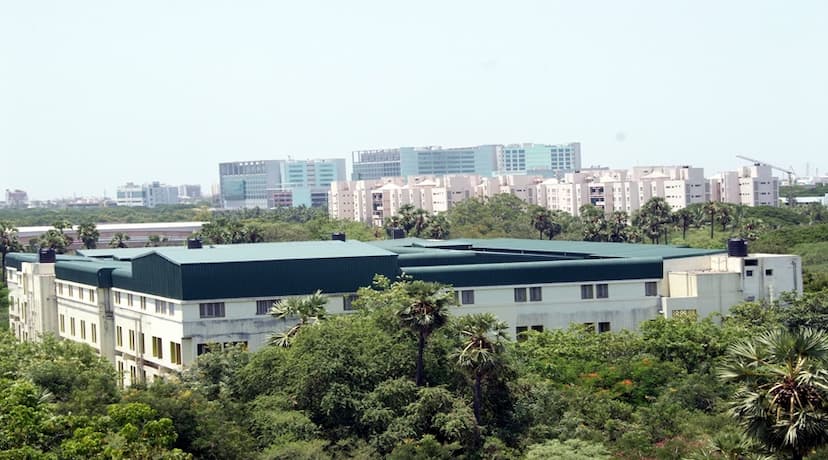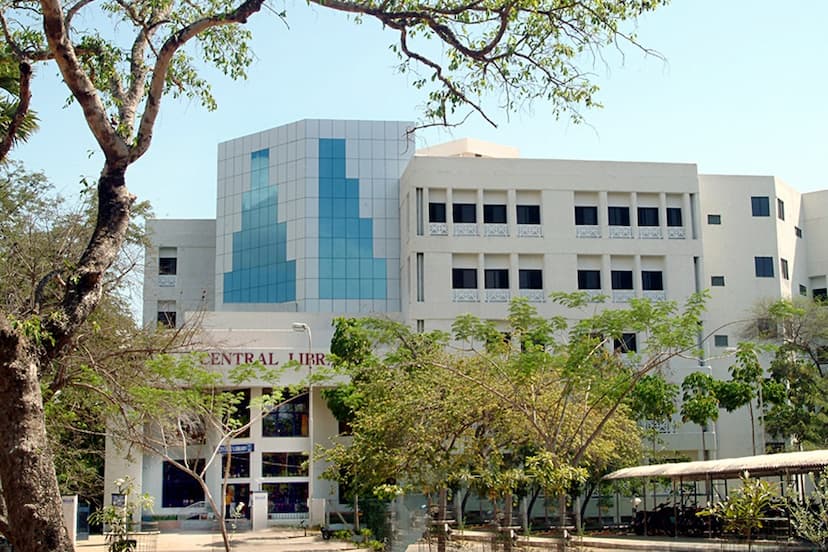IIT Madras ties up with great French University

IIT Madras is partnering with University of Tours of France to offer a course on ‘Sustainable Bio-Manufacturing of high-value Phytochemicals’.
This course is being offered through the ‘Global Initiative of Academic Networks’ (GIAN) program to promote collaboration with international universities, say sources from IIT Madras.


Content
The course deals with sustainable biomanufacturing of high-value plant-derived natural products using plant and microbial bio-factories, which can also conserve nature while fulfilling the increasing market demand for phytochemicals for various commercial applications.
Open
This course is also open for those outside IIT Madras. Researchers, industry professionals, students (BTech, MTech, MSc, PhD) in plant biotechnology/bioprocess Engineering/biotechnology and faculty from recognized institutions can apply.
Applicants are expected to have a basic knowledge of plant cell and microbial technology and fermentation, say sources from IIT Madras.


The course will be taught from 2nd to 14th December 2024. Further details can be obtained from the following link – https://shorturl.at/23b9H
Research
It will address the need for fundamental research on the identification of biosynthetic pathways and modern approaches that allow their acceleration.

It will also address new developments in plant biotechnology approaches of rationally integrating bioprocess and metabolic engineering principles to maximize the yield of high-value phytochemicals from plant and yeast cell biofactories for economic feasibility in these bioprocesses, say sources from IIT Madras.
Objective
The objective of this course is to introduce to the participants, current state-of-the-art available technologies to sustainably produce high-value plant metabolites (phytochemicals like drugs and cosmetics) as an alternative to natural plant extraction and total chemical synthesis, say sources from IIT Madras.
These techniques are based on the application of plant and microbial cell technology called ‘cell factory’ for sustainable biomanufacturing of phytochemicals.
Need
Prof. Smita Srivastava, Department of Biotechnology, Bhupat and Jyoti Mehta School of Biosciences, IIT Madras highlighted the need for such courses.

For India to tap on the growing demand for plant based natural products and phytochemicals in the domestic as well as global market, and to become a global biomanufacturing hub in this niche segment.
It is imperative to work around three pillars including Capacity building, Innovation and Entrepreneurship in this specialised domain, said Prof Smita of IIT Madras.
She further said such short-courses can be extremely useful to create awareness and interest among the budding researchers, industry professionals and entrepreneurs.
It can also pave way to developing such sustainable technologies for huge socio-economical impact both nationally and internationally, she said.

Thus, the development of technologies for production of active ingredients of plant origin, such as anticancer drugs, as alternatives to growing plants in fields, and as part of a sustainable development approach, is becoming one of the major challenges of the coming decade, she said.
She further said the course offered aims to lay the foundation and concept of emerging biotechnologies capable of meeting these challenges.
They will also demonstrate the power of international cooperation in the development of such projects and may stimulate the interest of experienced researchers or those at the dawn of their careers as well as industrialists to engage in this path of research or business development, she said.
GoI Approved
The Government of India approved ‘Global Initiative of Academic Networks’ (GIAN) in Higher Education is designed to tap the talent pool of scientists and entrepreneurs, internationally.
It is aimed to encourage their engagement with the institutes of Higher Education in India so as to augment the country’s existing academic resources, accelerate the pace of quality reform, and elevate India’s scientific and technological capacity to global excellence.
S Vishnu Sharmaa now works with collegechalo.com in the news team. His work involves writing articles related to the education sector in India with a keen focus on higher education issues. Journalism has always been a passion for him. He has more than 10 years of enriching experience with various media organizations like Eenadu, Webdunia, News Today, Infodea. He also has a strong interest in writing about defence and railway related issues.









